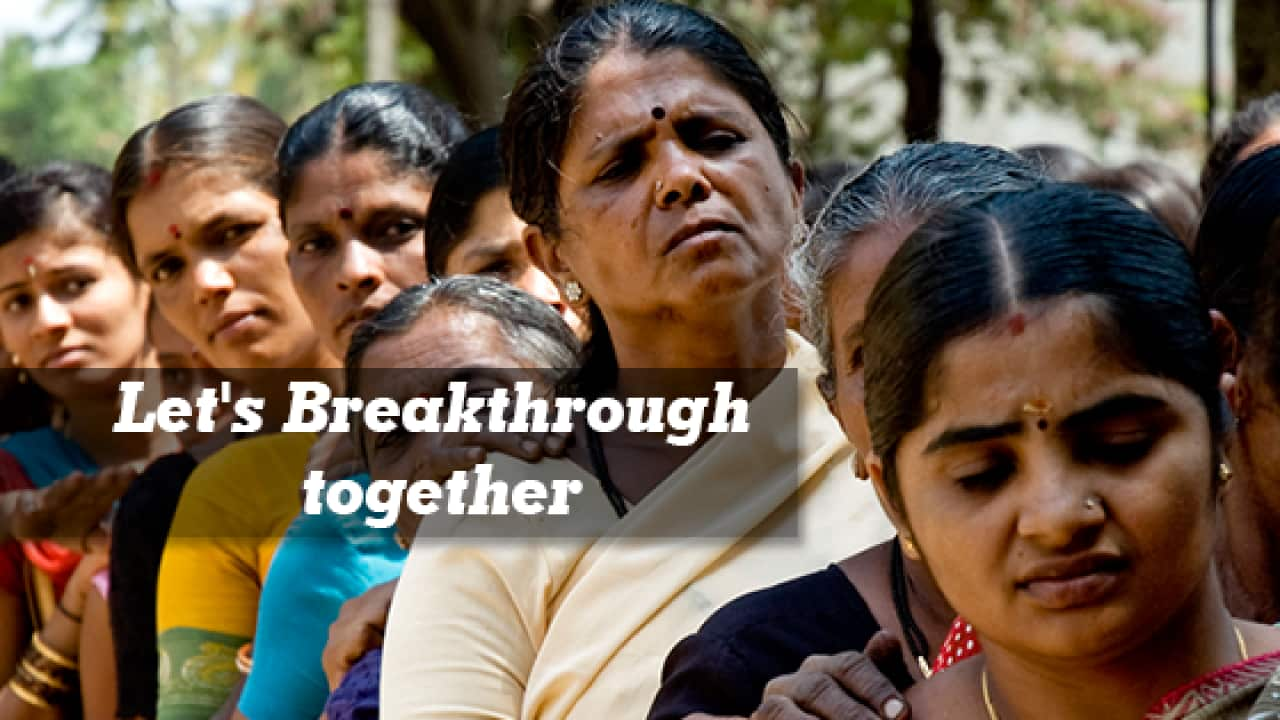Earlier this year, the human rights advocacy group released a feminist remake of iconic Indian pop classic Urvashi Urvashi that went viral.
The was a giant hit in India during the nineties – one of those catchy tunes that you hear once then hum for days afterwards. It was directed to women but, in retrospect, it’s clear it was written from a male perspective.
The video sees Indian dance legend, Prabhu Deva, breaking some very funky dance moves while harassing college girls on a bus, to the mantra: “Take it easy Urvashi”. Urvashi translates in Sanskrit to ‘she who controls the heart of others’. The 2017 remix however, couldn’t suggest a more different social message to the original. The new version sees three women dancing on a roof urging women to ‘break the glass ceiling.’ Lyrics address a number of issues, from fat shaming to victim blaming, to clothing causing family dishounour, and alcohol and chow mein leading to rape. The new mantra: ‘Don’t take it easy Urvashi.’
“We thought, wouldn’t it be fun if a song as catchy as Urvashi had feminist lyrics?” says Breakthrough’s vice president, Sonali Khan. below.
“The response [online to the new remix] was overwhelming.” However, Khan says, “While some appreciated the attempt, a large chunk of the attention we received was in the form of hate, abuse and violence.” The three female performers were trolled and subjected to personal attacks across platforms.
“Instead of going for feminist Urvashi, you could have went with ‘fat whales crying for three minutes cus they are fat,’ posted one man .
“The resistance is an obstacle,” Khan tells SBS, “but we recognise this is an essential step for any change to come about.”
Building a new world
Breakthrough’s organisational mission is to brand violence against women and girls as unacceptable throughout all of society. It also aims to conduct activities that tackle issues such as female infanticide, and sexual violence, child marriage (India has one third of the world’s ) and gender-based discrimination.
Change via pop culture is at its core: the organisation was launched in 2000 with the release of a rousing, multiple-award winning album of music videos, featuring a woman who escaped an abusive marriage to become a truck driver. Based on a true story, the album reached millions and according to Breakthrough founder , acted as a springboard for discussing women's issues. "The songs don't go, 'Don't beat me.' They go, 'I want to flow like the river.' It makes women a human entity rather than a victim.” It was the first time in India that an album about social issues became a chart-buster.
Using popular culture to create new norms and new narratives about equality and justice can be a powerful way to build a new world.
“People engage with popular culture on a daily basis,” says Dutt. “Using popular culture to create new norms and new narratives about equality and justice can be a powerful way to build a new world.”
“While a video can reach millions of viewers, real change comes only when that attention is channeled into meaningful action. Twitter, Facebook, YouTube and online petition platforms like Avaaz and Change raise awareness and mobilise physical action, acting as milestones along the journey towards social transformation,” Dutt adds.
As well as providing an ideal launch pad for videos and campaigns, social media helps Breakthrough act swiftly in response to individual incidents. In what described as a "Brazen, mass molestation of women," a number of women were reportedly groped during New Year’s Eve 2017 street celebrations in the city of Bangalore. Breakthrough responded immediately with a digital campaign #IWillGoOut”, which saw thousands of women come out in force to reclaim public spaces.
Speaking up against violence that women and girls face is always met with a backlash, but we have to view this backlash as a step forward in the struggle.
Similarly, their ‘Board The Bus’ campaign encouraged women to use public transport in the wake of the brutal gang rape of a young woman on a Delhi bus in 2012. The nation was outraged by the attack and subsequent death of the young woman and people flocked to the streets to express their anger.
The case was clearly a catalyst for public awareness and resulted in tougher anti-rape legistlation, which Khan describes as “a milestone for women”.
However, meaningful social change often takes time. The National Crime Records Bureau report and a total of in 2015 alone. “Normative change – something that Breakthrough strives for is a slow process and a long-term goal,” Khan says.
“As a feminist human rights organisation, we do feel that we are definitely at a stage where conversations have begun and are being sustained. Speaking up against violence that women and girls face is always met with a backlash, but we have to view this backlash as a step forward in the struggle.”


